From “The A.A. Group…where it all begins” pamphlet:
What Is an Informed A.A. Group Conscience?
The group conscience is the collective conscience of the group membership and thus represents substantial unanimity on an issue before definitive action is taken. This is achieved by the group members through the sharing of full information, individual points of view, and the practice of A.A. principles. To be fully informed requires a willingness to listen to minority opinions with an open mind.
On sensitive issues, the group works slowly — discouraging formal motions until a clear sense of its collective view emerges. Placing principles before personalities, the membership is wary of dominant opinions. Its voice is heard when a well-informed group arrives at a decision. The result rests on more than a “yes” or “no” count — precisely because it is the spiritual expression of the group conscience.
The term “informed group conscience” implies that pertinent information has been studied and all views
have been heard before the group votes.
A.A. Group Inventory
Many groups periodically hold a “group inventory meeting” to evaluate how well they are fulfilling
their primary purpose: to help alcoholics recover through A.A.’s suggested Twelve Steps of recovery. Some groups take inventory by examining our Twelve Traditions, one at a time, to determine how well they are living up to these principles. The following questions, compiled from A.A. shared experience, may be useful in arriving at an informed group conscience. Groups will probably wish to add questions of their own:
- What is the basic purpose of our group?
- What more can our group do to carry the message?
- Is our group attracting alcoholics from different backgrounds? Are we seeing a good cross section of our community, including those with accessibility issues?
- Do new members stick with us, or does the turnover seem excessive? If so, why? What can we as
a group do to retain members? - Do we emphasize the importance of sponsorship? How effectively? How can we do it better?
- Are we careful to preserve the anonymity of our group members and other A.A.s outside
the meeting rooms? Do we also leave what they share at meetings behind? - Does our group emphasize to all members the value of keeping up with the kitchen, set-up,
clean-up and other housekeeping chores that are essential for our Twelfth Step efforts? - Are all members given the opportunity to speak at meetings and to participate in other group
activities? - Mindful that holding office is a great responsibility not to be viewed as the outcome of a
popularity contest, are we choosing our officers with care? - Are we doing all we can to provide a safe, attractive and accessible meeting place?
- Does our group do its fair share toward participating in the purpose of A.A. — as it relates
to our Three Legacies of Recovery, Unity and Service? - What has our group done lately to bring the A.A. message to the attention of professionals in
the community — the physicians, clergy, court officials, educators and others who are often the first to see alcoholics in need of help? - How is our group fulfilling its responsibility to the Seventh Tradition?
Reprinted from “The A.A. Group…where it all begins”, pgs 28-30, with permission of A.A. World Services, Inc.
unofficial Late Show Online member survey
April 2025, tiny sample size, may not be statistically stable!
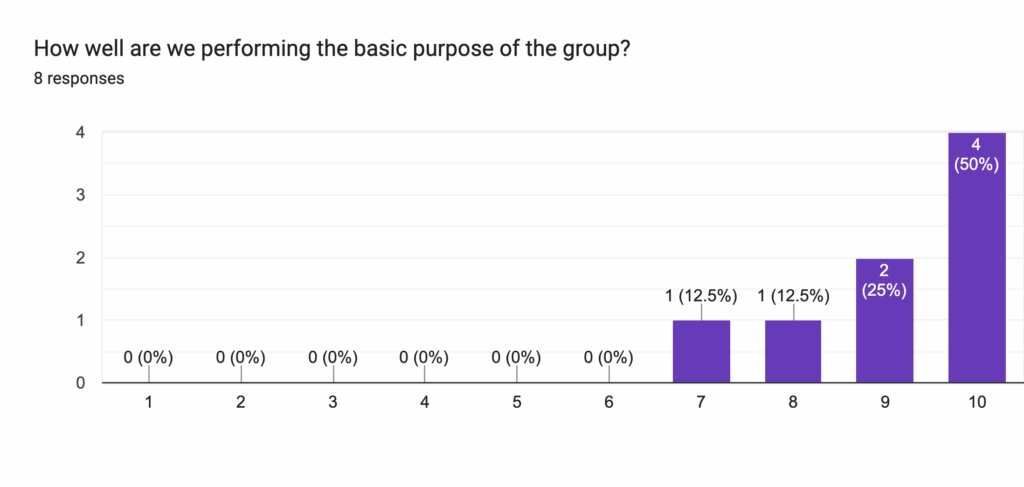
What more can the group do to carry the message? (5 responses)
- Senior members could make room for more voices to be heard in the post-meeting parking lot.
- be even more welcoming to newcomers
- Minimize ongoing chat conversations during How it Works and the Promises.
- Talk more about our group at other meetings
- Snag a GSR and do group inventory
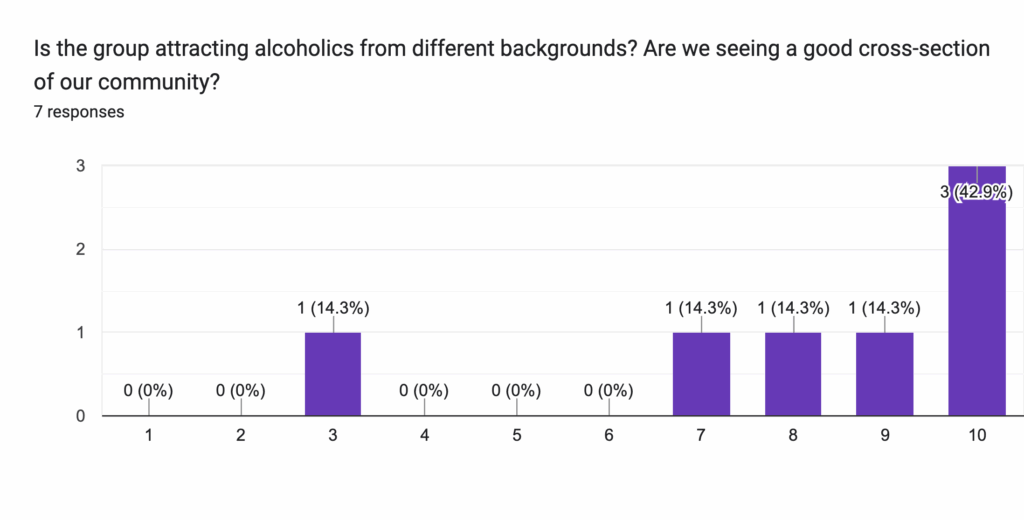
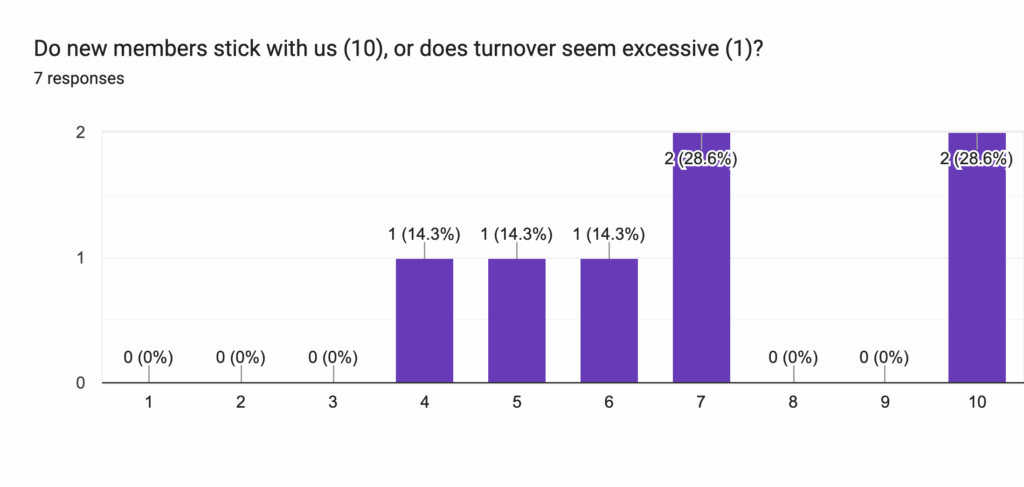
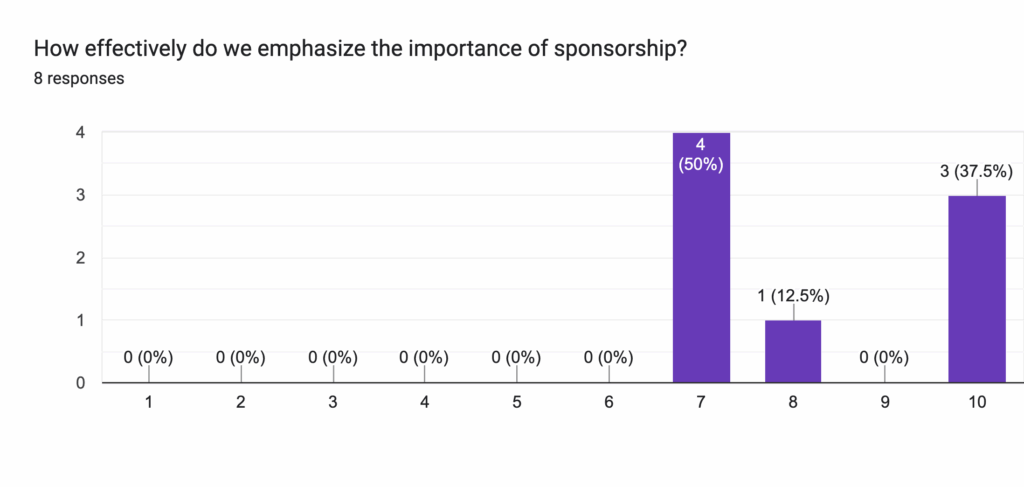
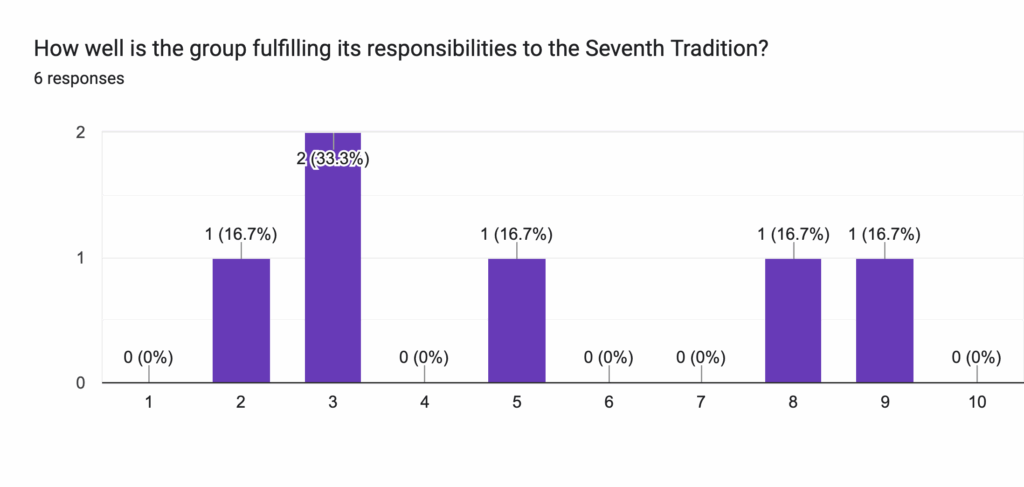
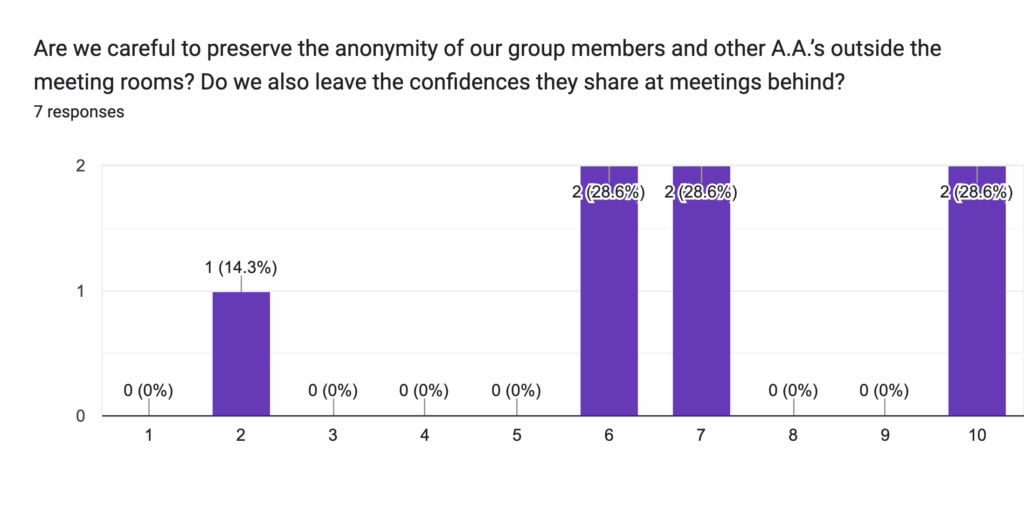
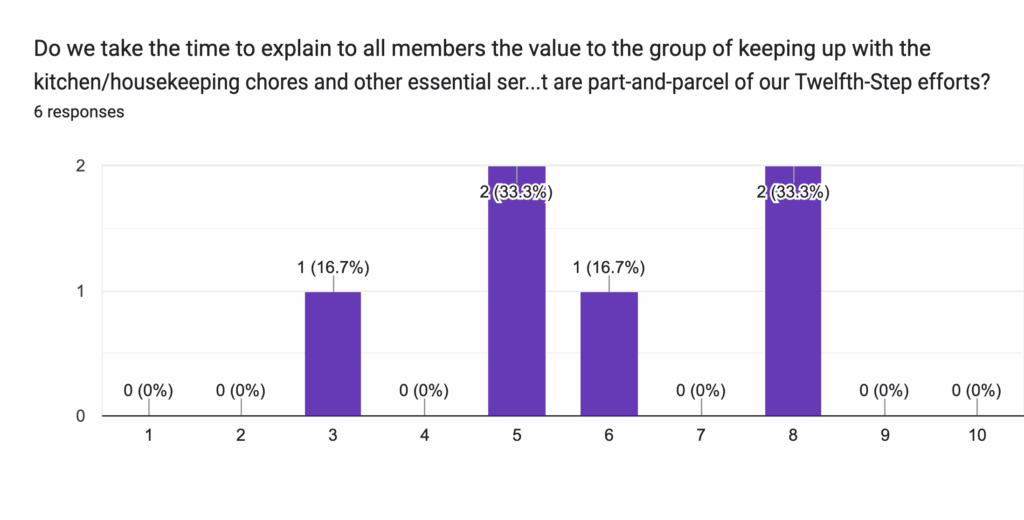
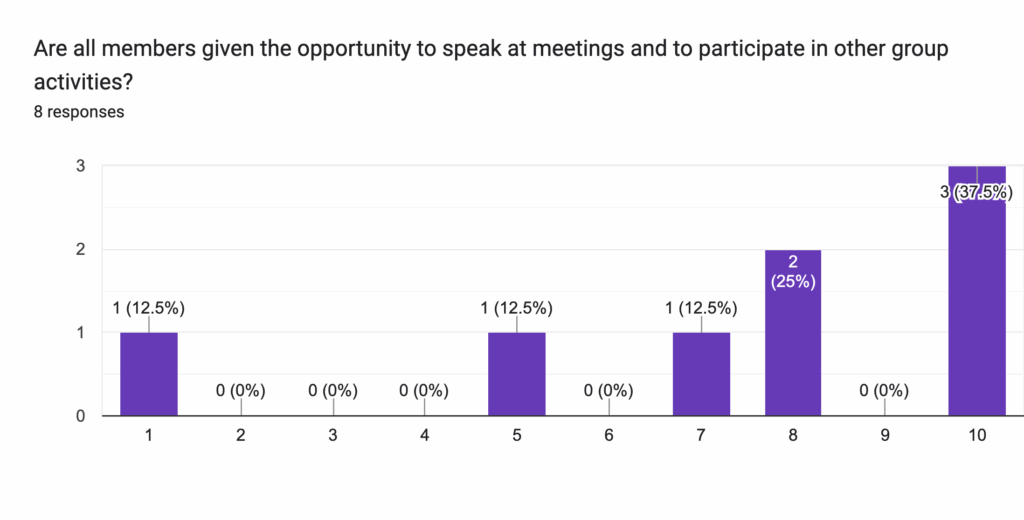
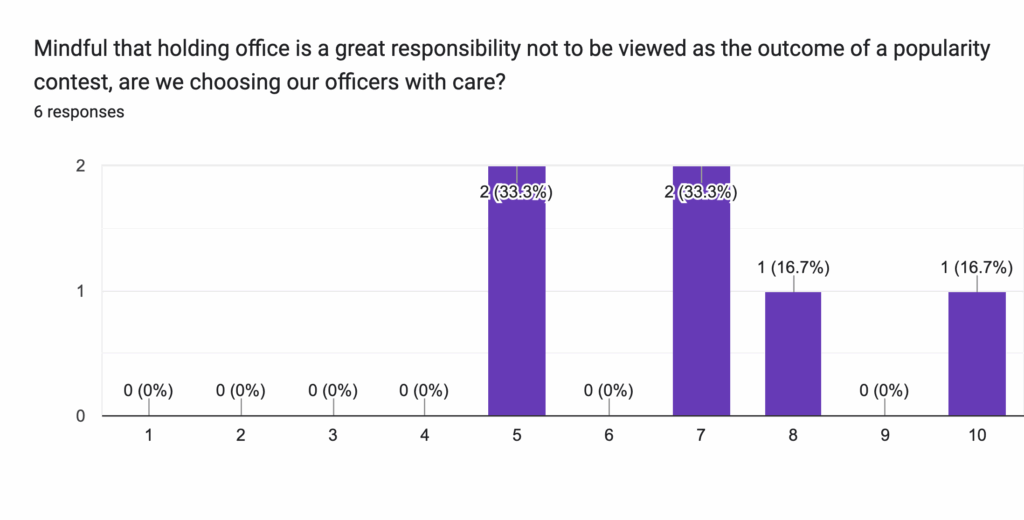
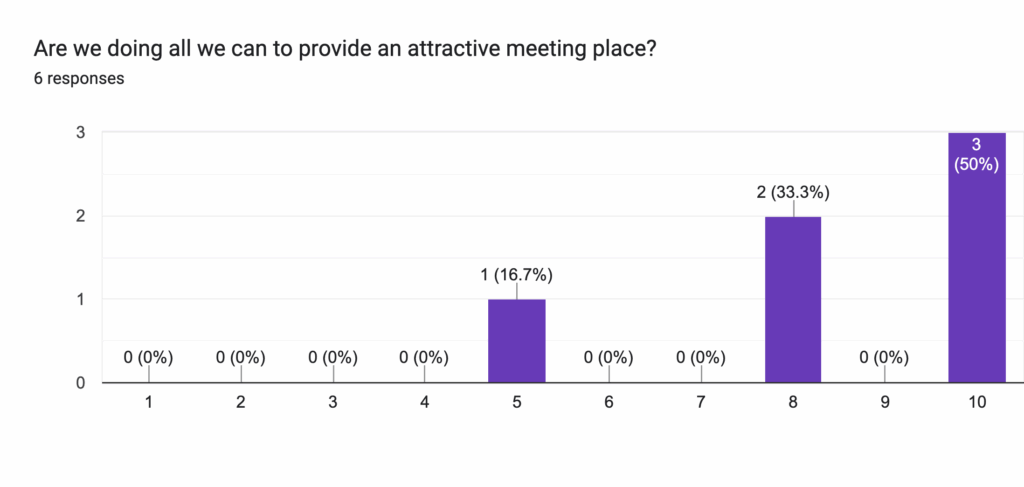
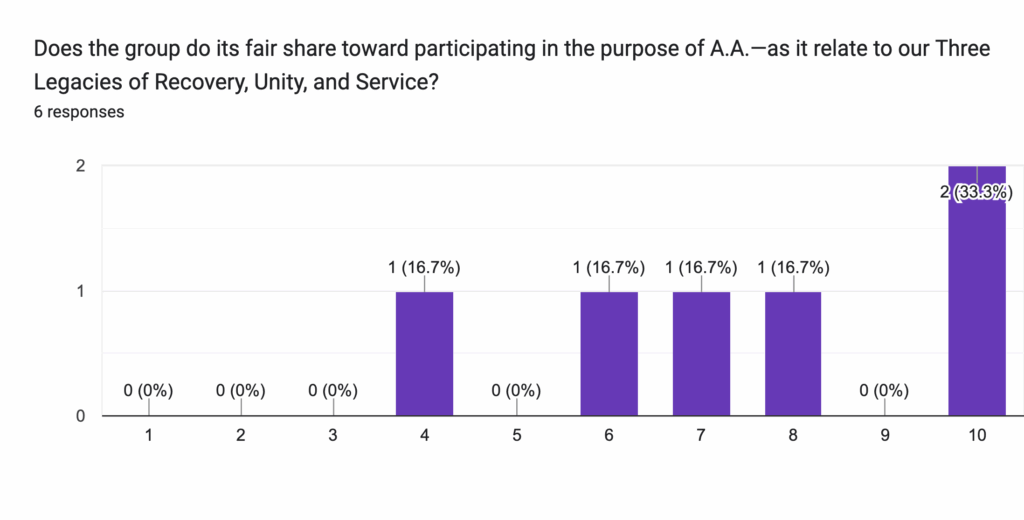
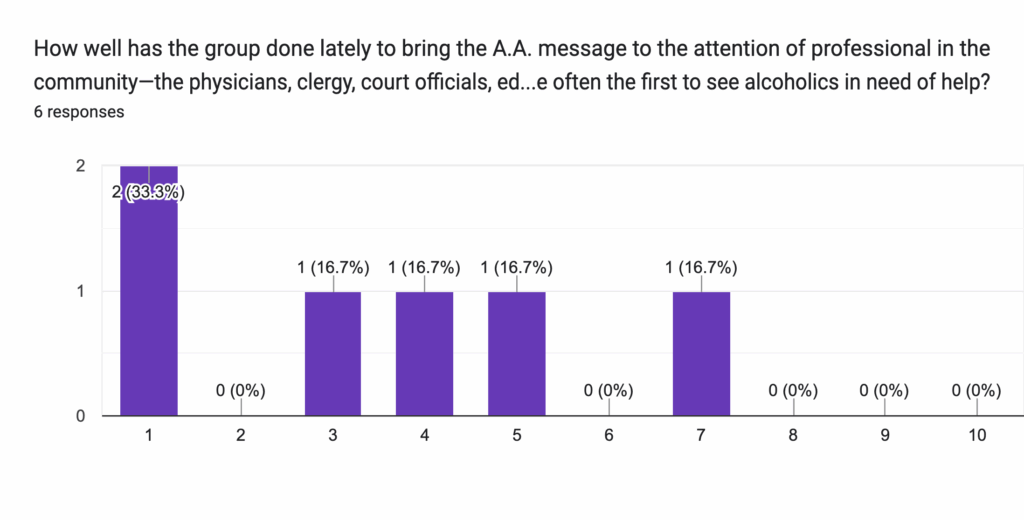
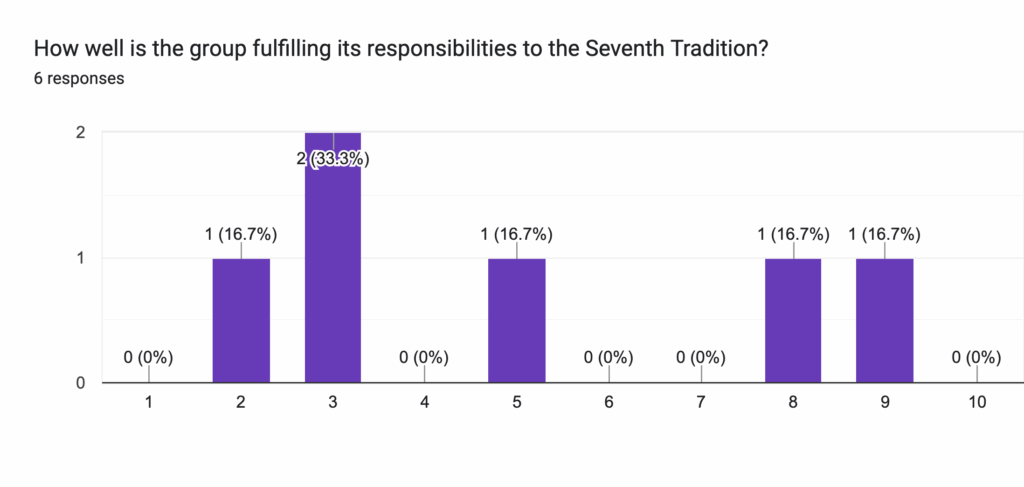
Appendix
“Unofficial Late Show Online member survey”